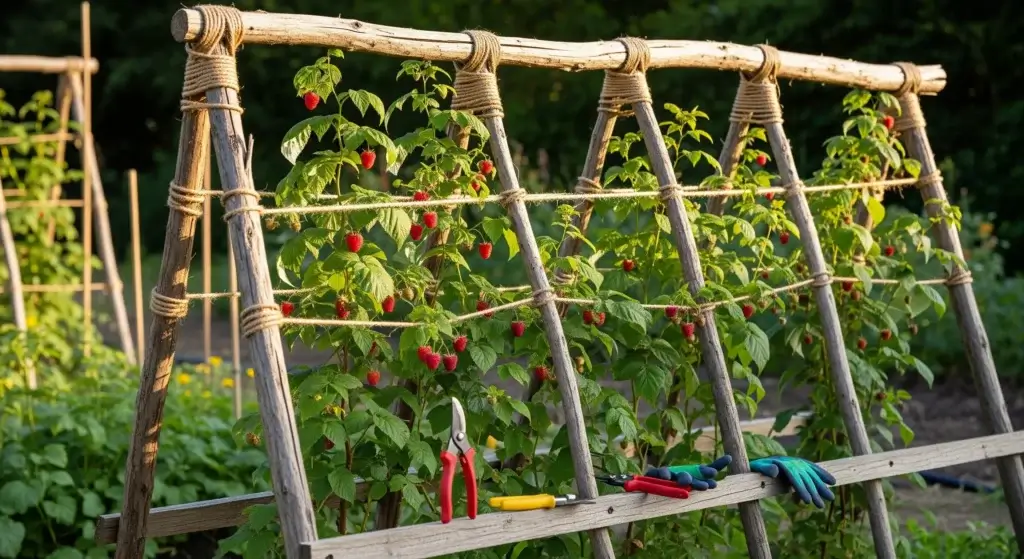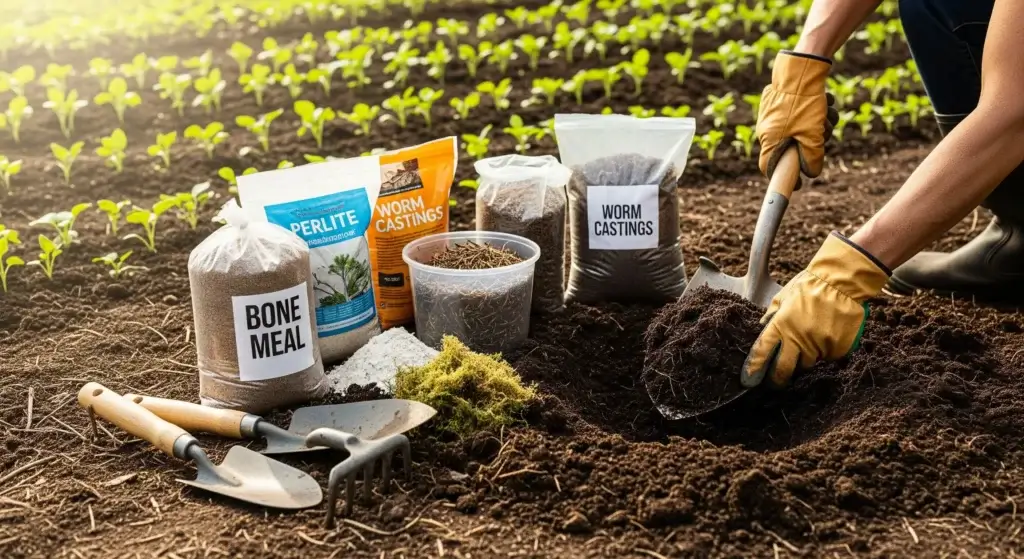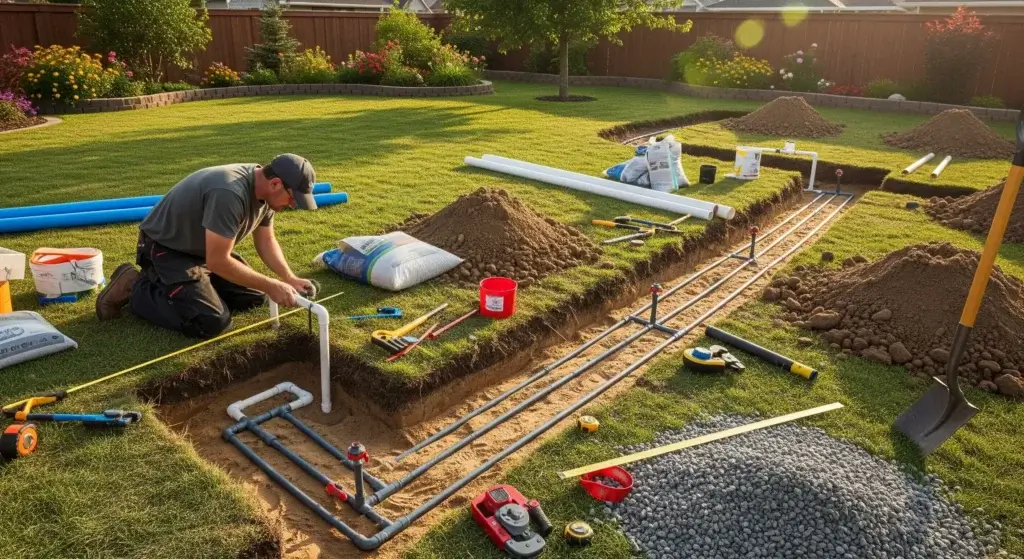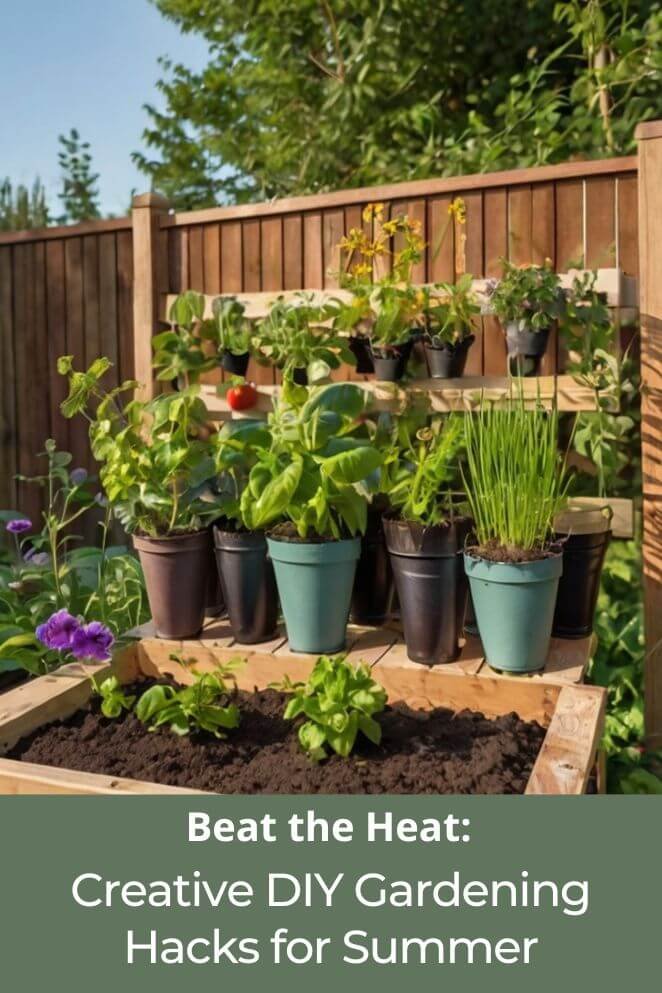
Summer is the best time for gardening, but it also brings challenges like scorching heat, water shortages, and pesky insects.
If you’re looking for simple, budget-friendly ways to keep your garden lush and healthy, you’re in the right place!
These DIY gardening hacks will help you conserve water, keep pests at bay, and protect your plants from extreme heat—all while improving soil health naturally.
Water-Saving Hacks
Water is a precious resource, especially during hot summer months.
These hacks will help you keep your plants hydrated without wasting a drop.
DIY self-watering containers
If you’re a busy gardener, self-watering containers can be a lifesaver.
They provide a steady supply of water to your plants without constant supervision.
Here’s how to make one:
- Take a large plastic bottle and poke small holes in the cap.
- Cut off the bottom and bury the bottle upside down near the plant’s roots.
- Fill it with water, and it will slowly release moisture as needed.
Studies show that self-watering systems can cut water use by up to 50% compared to traditional watering methods (Journal of Sustainable Agriculture, 2022).
That means healthier plants with less effort!
Mulching
Mulch isn’t just for looks—it’s a powerhouse when it comes to water conservation.
It locks in moisture, keeps the soil cool, and prevents weeds from stealing water.
- Use organic materials like straw, grass clippings, or wood chips.
- Apply 2–3 inches around plants to slow down evaporation.
- Bonus: As mulch breaks down, it adds nutrients to the soil, helping your plants grow stronger.
Collect rainwater
Why let rain go to waste?
Collecting rainwater reduces your water bill and provides fresh, chemical-free hydration for your plants.
- Place a rain barrel under a downspout to catch runoff.
- Use a fine mesh screen to keep debris and insects out.
- A full rain barrel (about 50 gallons) can water a medium-sized garden for over a week!
Deep watering techniques
Giving your plants a little water every day might seem helpful, but it actually leads to shallow, weak roots.
Instead, use deep watering techniques:
- Water early in the morning or late in the evening to reduce evaporation.
- Use a drip irrigation system or soaker hose to send water directly to the roots.
- Deep watering encourages roots to grow deeper, making plants more drought-resistant.
By using these simple water-saving hacks, you’ll not only conserve water but also grow a healthier, more resilient garden.
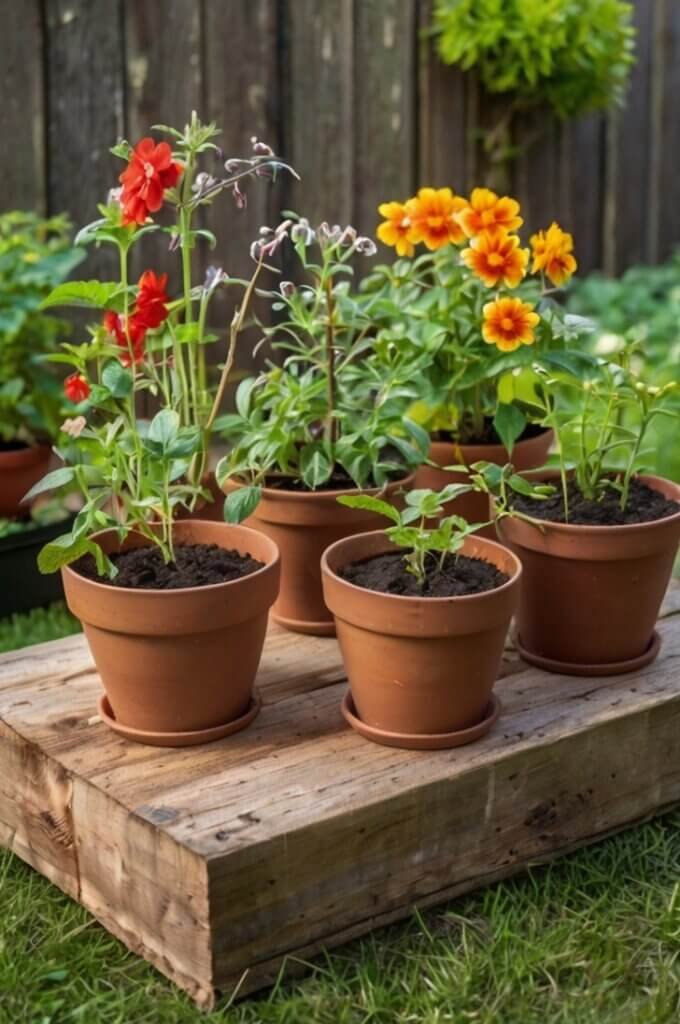
Pest Control Hacks
Pests can wreak havoc on your garden.
These natural solutions help control infestations without harmful chemicals.
Natural pest repellents
Forget chemical pesticides—nature has plenty of safer solutions!
- Neem oil spray: Mix 1 teaspoon of neem oil with a quart of water and a few drops of dish soap. Spray it on your plants to keep aphids and caterpillars at bay.
- Garlic-pepper spray: Blend garlic, hot peppers, and water, then strain the mixture. Spray it on your plants to repel bugs that don’t like strong scents.
These natural sprays create an invisible shield around your plants, keeping pests away without harming beneficial insects.
Companion Planting
Some plants work as natural pest repellents when grown together.
Try these pairings:
- Marigolds – Their scent keeps aphids and root-damaging nematodes away.
- Basil – Not only does it make your dishes delicious, but it also repels mosquitoes and tomato hornworms.
- Lavender – It keeps moths and fleas at bay while attracting pollinators like bees and butterflies.
By choosing the right plants, you can create a garden that naturally resists pests while thriving with minimal effort.
DIY pest traps
Sometimes, you need to catch pests before they destroy your plants.
These simple traps can help:
- Beer trap for slugs: Pour beer into a shallow dish and place it in your garden. Slugs are drawn to the scent and will fall in.
- Sticky traps for flies: Smear petroleum jelly on yellow index cards and hang them near plants. Flies and other small pests get stuck before they can cause damage.
These homemade traps are inexpensive, effective, and chemical-free—perfect for an organic garden.
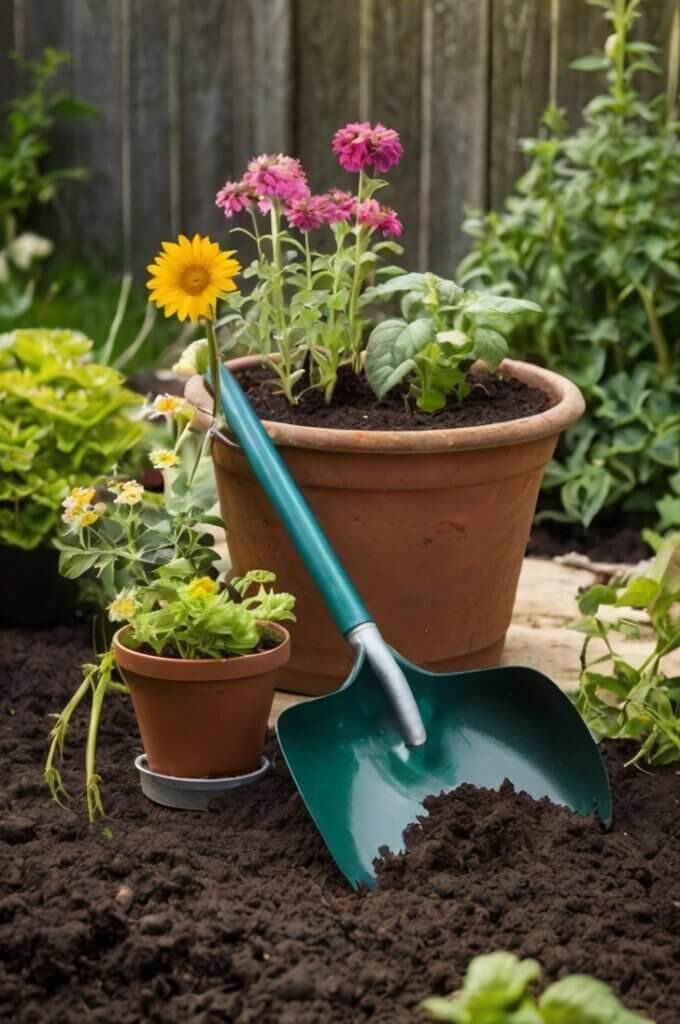
Heat Protection Hacks
Extreme heat can stress plants.
These tricks will help shield them from the sun’s intensity.
Shade solutions
Just like we seek shade on a hot day, plants need relief too!
- Use shade cloths or old bedsheets to cover delicate plants during extreme heat. Simply drape them over stakes or hoops for instant protection.
- Move potted plants to a shaded area during the hottest part of the day. If possible, place them under trees, patios, or even next to taller plants for natural shade.
A little shade can go a long way in preventing sun damage and keeping plants cool..
Sunscreen for plants
Plants can get sunburned, but a simple homemade spray can help:
- Mix 1 gallon of water with 2 tablespoons of kaolin clay.
- Spray this mixture lightly on plant leaves. It forms a thin, protective layer that reduces sunburn while still allowing light for photosynthesis.
Think of it as a natural sunscreen that keeps your plants safe without blocking essential sunlight!
Watering timing
Timing is everything when it comes to watering in hot weather:
- Water in the early morning so plants can absorb moisture before the heat kicks in. This encourages deep root growth.
- Evening watering helps plants recover from the heat, but avoid wetting the leaves too much to prevent fungal diseases.
Deep, consistent watering keeps plants hydrated and resilient against heat stress.
Soil and Nutrient Hacks
Healthy soil equals healthy plants. Here are simple ways to boost nutrients.
DIY compost tea
Think of compost tea as a power drink for your plants—it delivers essential nutrients in a liquid form, making it easier for plants to absorb.
Here’s how to make it:
- Fill a bucket with water and add a few handfuls of compost or worm castings.
- Let it steep for 24–48 hours, stirring occasionally to oxygenate the mix.
- Strain out the solids and use the nutrient-rich liquid to water your plants.
This natural fertilizer boosts soil health, encourages beneficial microbes, and promotes stronger plant growth.
Eggshell fertilizer
Calcium is crucial for plant development, especially for preventing blossom-end rot in tomatoes and peppers.
Instead of tossing eggshells, put them to work:
- Crush and sprinkle eggshells around plants to slowly release calcium into the soil.
- Add them to your compost to enrich the mix with extra nutrients.
Over time, eggshells break down and fortify the soil, giving your plants a natural strength boost.
Coffee grounds for acid-loving plants
Used coffee grounds aren’t just waste—they’re a natural way to enrich your soil with nitrogen and improve acidity.
Try these simple hacks:
- Sprinkle coffee grounds around plants like roses, blueberries, and tomatoes to enhance their growth.
- Mix them into your compost to improve microbial activity and create richer soil.
Coffee grounds also help improve soil structure, making it easier for roots to spread and absorb nutrients.
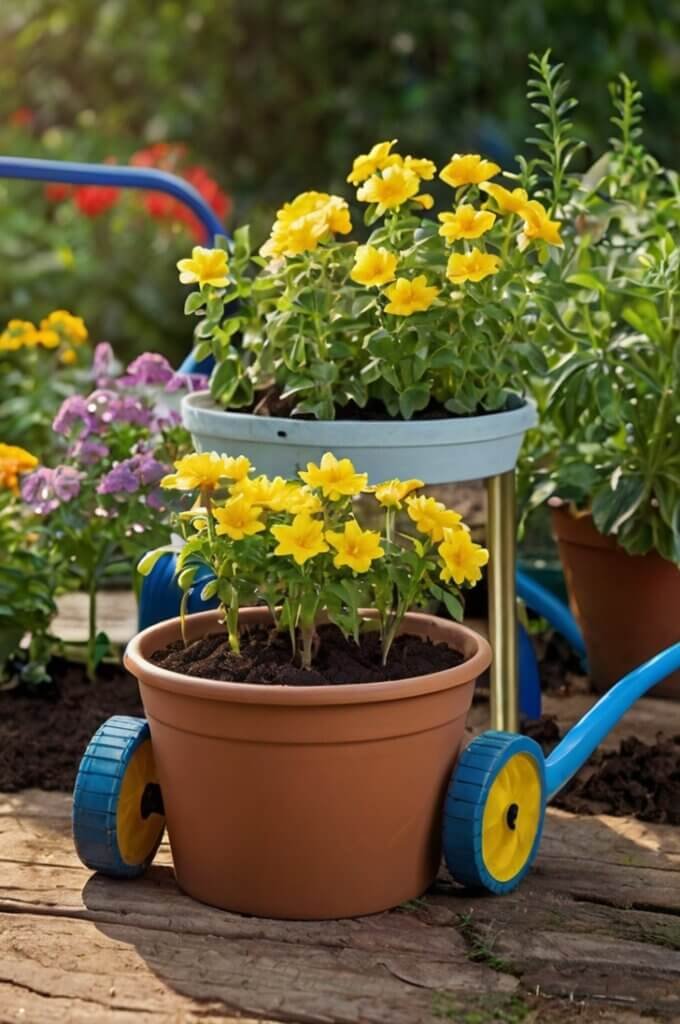
Final Thoughts
Gardening in the summer doesn’t have to be a struggle.
With these DIY hacks, you can conserve water, protect plants from heat, and keep pests away—all while boosting soil health.
Try a few of these methods and watch your garden thrive!

